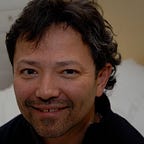Deleuze and Pragmatism 3
Perspectives on Deleuze: A Practical Dialectic
John Rawls
Constructivism in the social and political sense was reinterpreted by John Rawls, perhaps the most important political theorist of the 20th century.
We will be discussing Rawls’ theories of political liberalism and justice as fairness in future articles, but at this juncture it is worth noting the constructivism he introduced into his thought, and the variations around it that have developed recently.
Rawls and subsequent philosophers have attempted to expand on what constructivism means in the shared public sense, in a world in which we must relinquish aspirations for discovering an objective truth of reality, thought and ethics.
Kantian Constructivism
Rawls posited a “Kantian constructivism,” the assertion that moral objectivity could only be understood in terms of a socially constructed point of view that all can accept. That is:
Moral truths are not discovered, but determined socially in accordance with a procedure all can accept.
Rawls asserts that, in the political context, procedure must be fair, and, if so, justice results. He posits a hypothetically fair procedure in terms of what he dubs the “original position” and “reflective equilibrium,” which we will discuss in future articles.
Suffice it to say at this point that Rawls maintained a close reliance on Kant by elevating the role of reason as autonomous in the construction of a public morality, a view he would later relax in the context of deliberations spanning a number of very different world views.
Social Deliberations
Subsequent philosophers have expanded the concept of moral and political constructivism by relaxing the assumptions of social procedural deliberations.
Agents engaged in social construction do not just bring their rationalism with them to the debate, but bring all of their thoughts, feelings and desires.
Self-reflective agents bring all of their humanity to social deliberations, and while they may disagree on specific concepts, they agree on the value of humanity itself.
Further, they bring with them the understanding that we are interdependent and rely on one another for our survival. We are finite and vulnerable and we bring this to the construction of social values.
Fallible and Unfinished
Rawls saw the process of constructing social values as one that is never finished. There is no final resting solution to the deliberations.
Social debate is a process characterized by a wide form of reflective equilibrium based on a consistency and coherence of thought, but never leading to a foundational knowledge not subject to being tested, again and again.
In his view, all social thought was subject to revision depending on the circumstances in which it takes place; in other words, depending on the problems that need to be addressed. Further, the process is not assumed to be a perfect one, but instead subject to sub-optimality and correction; ie., it is a fallible process.
Change and Becoming
We can see the similarities with Gilles Deleuze. For Rawls, thought is no longer subject to objective transcendence.
For Rawls, the motivation for constructivism in the political sense is that we can never agree on ethical or moral facts, and political decision-making should be seen as a separate process altogether.
Deleuze and Rawls would likely disagree on many of the considerations that would go into a shared vision of social deliberation, but they would agree on the contingent nature of any solutions. Both leave open the scope for change and becoming.
None of this is intended to characterized Deleuze and Rawls as philosophers that have much in common in terms of their core views of reality. This discussion is only in aid of exploring how one might expand Deleuze’s thought into the realm of the practicalities of social decision-making, something not explicitly discussed in his writings.
The point is Deleuze has much in common with other philosophies that recognize the shortcomings of any philosophy that hinges on ontological, epistemological and ethical truth.
A Practical Immanent Dialectic
Practical social and political thought is conceivable under and contemplated by a Deleuzian vision of pure difference.
Instrumental thought in the social realm that affirms life and nature and is exercised in aid of the survival and flourishing of interdependent beings, at all times tentative and subject to revision, is consistent with a world of difference-in-itself and repetition-for-itself.
Deleuze’s vision need not slip into a nihilism of perspectives, but instead embraces multiple perspectives that affirm life, affirm the natural.
Indeed, life is only affirmed if we admit the process is necessarily perspectival, necessarily created in the field, and never standing outside the field dictating incontestable solutions for life.
A pragmatic dialectic is a practical procedure for the debate of practical thought, in aid of arriving at contingent solutions or outcomes that work in a social and political context.
A pragmatic dialectic involves a process that is open and explores a multiplicity of perspectives, continuous and infinitesimal, weighing them up in an attempt to find a consistency and coherence that resonates, can be verified, and is fallible and revisable.
The norm of a pragmatic dialectic is the affirmation of life, the enhancement of life.
Nomadic Minoritarians
Nomadic practical thought is molecular not molar, always tending towards the specifics of problems, and finding new perspectives.
The challenge is to examine the surface and depth of a problem, without recourse to abstraction or infinity, to seek the virtual in the problem, the life force of a problem; to do practical thought from the standpoint of a minoritarian.
The challenge is to root out transcendent, static, infallible objectivity wherever it rears its ugly head: to rule out the authoritarian, the totalitarian, the fascist tendencies of thought that can arise in a social and political context.
I hope you enjoyed this article. Thanks for reading!
Tomas
Please join my email list here or email me at tomas@tomasbyrne.com.
Excerpt from my forthcoming book, Becoming: A Life of Pure Difference (Gilles Deleuze and the Philosophy of the New) Copyright © 2021 by Tomas Byrne. Learn more here.
